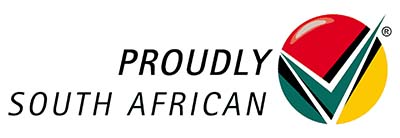Financial reconciliation plays a crucial role in ensuring the accuracy and integrity of a company’s financial records.
It involves comparing and matching data from various sources, such as bank statements, internal ledgers, and external invoices, to identify and resolve discrepancies.
This meticulous process safeguards against errors and fraud, ultimately contributing to the financial health and stability of an organization.
Key Facts
- Financial reconciliation is vital for accuracy and integrity in a company’s financial records.
- Accountants, the architects of financial stability, play a crucial role in reconciling accounts amidst unique financial regulations in South Africa.
- Auditors, as truth-seekers, provide reassurance by conducting independent reviews, aligning financial narratives with reality.
- Financial controllers serve as conductors in the financial reconciliation orchestra, overseeing processes for seamless harmony in South African businesses.
- Challenges in financial reconciliation include time-consuming manual processes, human errors, lack of standardization, data integration issues, complexity in transactions, compliance challenges, visibility and control issues, high operational costs, and increased fraud risk.
Professional Roles In Financial Reconciliation In South Africa
Financial Managers or Analysts
Meet the financial detectives of the corporate world.
In South Africa, financial analysts are the Sherlock Holmes of numbers, dissecting and interpreting financial data.
Their role goes beyond mere calculations – they’re on the lookout for discrepancies, ensuring the financial story makes sense.
Accountants
Think of accountants as the architects of financial stability.
They meticulously manage ledger entries, reconciling accounts to create a financial fortress for businesses.
In South Africa, where financial regulations dance to a unique rhythm, accountants play a crucial role in keeping the melody in harmony.
Auditors
Enter the auditors – the truth-seekers in the financial realm.
They conduct independent reviews, verifying the accuracy and completeness of financial records.
In South Africa’s diverse business landscape, auditors provide a reassuring voice, ensuring that financial narratives align with reality.
Financial Controllers
In the orchestra of financial reconciliation, controllers are the conductors.
They oversee the entire process, ensuring each instrument (or financial element) plays its part seamlessly.
For businesses in South Africa, financial controllers implement internal controls, harmonizing financial processes to the rhythm of success.
Challenges in Financial Reconciliation
Financial reconciliation, while crucial for maintaining accurate financial records, can be a complex and challenging task.
Here are some of the key challenges faced in the reconciliation process:
- Time-consuming and tedious: Manual reconciliation involves comparing and matching large volumes of data from various sources, which can be a time-consuming and tedious process, especially for large organizations with high transaction volumes. This can lead to employee frustration and burnout, impacting productivity and morale.
- Human error: Manual reconciliation is prone to human error, such as typos, miscalculations, and missed discrepancies. Even small errors can have significant financial consequences, leading to inaccurate reports and potential fraud.
- Lack of standardization: Reconciliation processes often lack standardization across different departments and accounts, leading to inconsistencies and inefficiencies. This makes it difficult to track and monitor progress, identify trends, and implement best practices.
- Data integration issues: Integrating data from multiple sources can be challenging due to differences in formats, coding, and definitions. This can lead to data mismatches and reconciliation errors.
- Complex transactions: Certain transactions, such as international payments, cross-currency transactions, and complex financial instruments, can be challenging to reconcile due to their intricate nature and additional regulatory requirements.
- Compliance challenges: Maintaining compliance with constantly evolving financial regulations and accounting standards can be a significant challenge, particularly for international organizations. Reconciliation processes need to be updated to reflect these changes, adding complexity and workload.
- Lack of visibility and control: Manual reconciliation often lacks transparency and real-time insights, making it difficult to identify potential issues early on and take corrective action. This can lead to delayed decision-making and missed opportunities.
- High operational costs: Manual reconciliation can be expensive due to the time and resources involved. This can put a strain on organizational budgets and limit resources available for other strategic initiatives.
- Fraud risk: Inaccurate or incomplete reconciliations can increase the risk of fraud, as discrepancies may go unnoticed. This can have serious financial and reputational consequences for the organization.
Conclusion
In the heart of South Africa’s asset management, financial reconciliation isn’t just a process – it’s a narrative crafted by professionals who understand the nuances of the local financial landscape.
As we embrace technology and face challenges head-on, these roles play a crucial part in shaping a stable and prosperous financial future for businesses in South Africa.
After all, it’s not just about balancing the books; it’s about creating a financial symphony that resonates with success.








